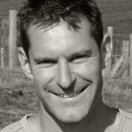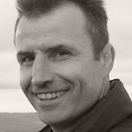While being sceptical can be a healthy way to avoid getting taken advantage of, being pessimistic – that is, always assuming the worst – can have major negative consequences on your life. Seeing only the negative aspects of any situation can cause you to miss opportunities, neglect problems that need to be solved, and fail to take action that would otherwise improve your relationships and quality of life. In fact, studies show that pessimists are more likely to develop chronic illnesses later on in life than optimists.
Optimists look for the light at the end of the tunnel the possibilities in life. If you’ve always had a pessimistic perspective, it can be difficult to shift your focus, but it is possible to start seeing the glass as half full, not half empty.
Practical Steps
1. “ It always happens to me” you can discard that false assumption that the World is against you for a start. It has no basis in reason or science. You may have picked up the skill of pessimism from a parent or early life experience. Either way the sooner you can link your pessimism to a set of unique circumstances rather than a perceived general malaise in the world it will be easier to change your perspective.
2. Much like in the world of investment past performance does not guarantee future success or failure for that matter. Just because something hasn’t worked out well in the past does not mean that you will be unsuccessful this time. Each occasion is different and unique.
3. “People are always blaming their circumstances… the people who get on in this world are the people who get up and look for the circumstances they want, and if they can’t find them, make them” (George Bernard Shaw). If you are unhappy with your current situation, set goals and take action. Action involves risk and you cannot guarantee that it will end positively but the upside is that some action will lead to good results. Action also gives you a sense of progress which will change your situation and give you a greater sense of control.
4. Train your brain! Your training your brain and like any muscle that needs to be exercised regularly and in the right way. Have you ever wondered why some people are able to stay positive, calm and rational under stress whilst others show anger, fear or anxiety? The former are working with the possibility of success and the later have lost control of their limbic system and have gone into fight or flight mode. Mental drills help us gain control of our limbic system and switch on our clever neo–cortex to solve the challenges we face.
5. Mental Drill:
a. Notice what you have got right in recent weeks. Take confidence from your successes no matter how small.
b. Write down what your concerns and anxieties are for the week ahead. If you are honest with yourself about them then you can see them in perspective and face them more confidently.
c. Be clear with yourself about what you control and influence? Don’t imagine.
d. Decide what action you can take to bring out the best leader in you. I say Leader because you need to lead yourself away from pessimism and towards optimism before you can lead anyone else.
6. Be a realistic optimist. Becoming more optimistic is not about looking at the world through rose tinted glasses it is about taking a measured and positive view of the possibilities in a situation.









